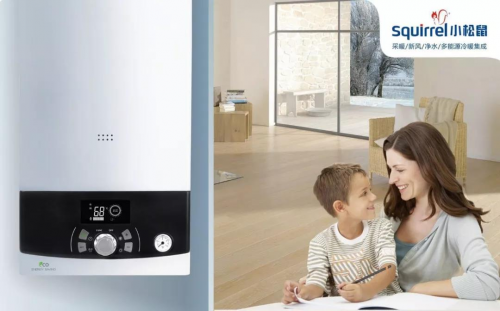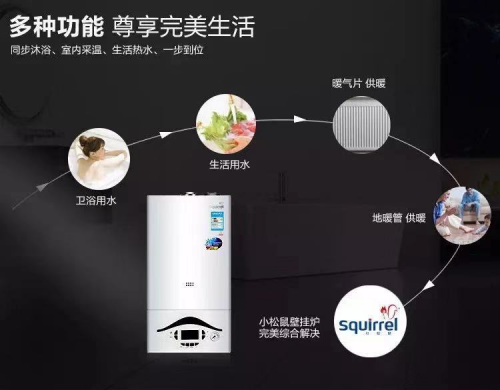Here are the wrong ways to use a gas boiler.
Turn off the boiler when not in use and turn it on when it is in use.
During the heating operation of the boiler in winter, many people are used to turning off the boiler when no one is at home during the day. Turn it on again at night and turn it to the highest setting for quick heating. In fact, this is inappropriate, fast heating, not only does not save energy, but easily affects the service life of boilers and radiators.
Taking the Squirrel wall-hung boiler as an example, the correct way should be to adjust the boiler to eco mode or adjust the temperature to the lowest temperature operation, which not only prevents the boiler from freezing, but also saves gas.

Put the boiler in a humid environment.
Squirrel wall-hung boilers are generally required to be installed in the kitchen, balcony or equipment room, and these places are required to be ventilated and dry. Because the boiler is in a humid environment or an oily fume environment for a long time, water vapor and oily fume will continue to adhere to the circuit board. Since water and oily fume are both electrical conductors, once the power is turned on, the circuit board components will malfunction, resulting in failure and damaged circuit board. Power on the boiler and use it frequently, and keep the use environment dry and ventilated, which can reduce the failure of the boiler.

Add antifreeze to the fireplace.
Chemical substances, especially antifreeze, cannot be added to the wall-hung boiler system. Users should also correctly prevent freezing according to the situation at home, configure the thermostat to plan the use state of the boiler more reasonably, and set low-temperature heating when leaving home during the day, and raise the temperature in time after returning home. However, for safety reasons, if you do not at home for a long time, you must cut off the gas and power supply after draining the water inside the boiler.

Replace the water frequently for the radiator.
Scale is a major problem affecting heating efficiency and service life. However, this does not mean that the water of the radiator needs to be replaced frequently. The specific reason is that a large amount of water and alkali will be brought in every time the water is replaced, which will accelerate the formation of scale. It is recommended to drain the dirty water in the radiator after one to two heating seasons and refill it with clean water.